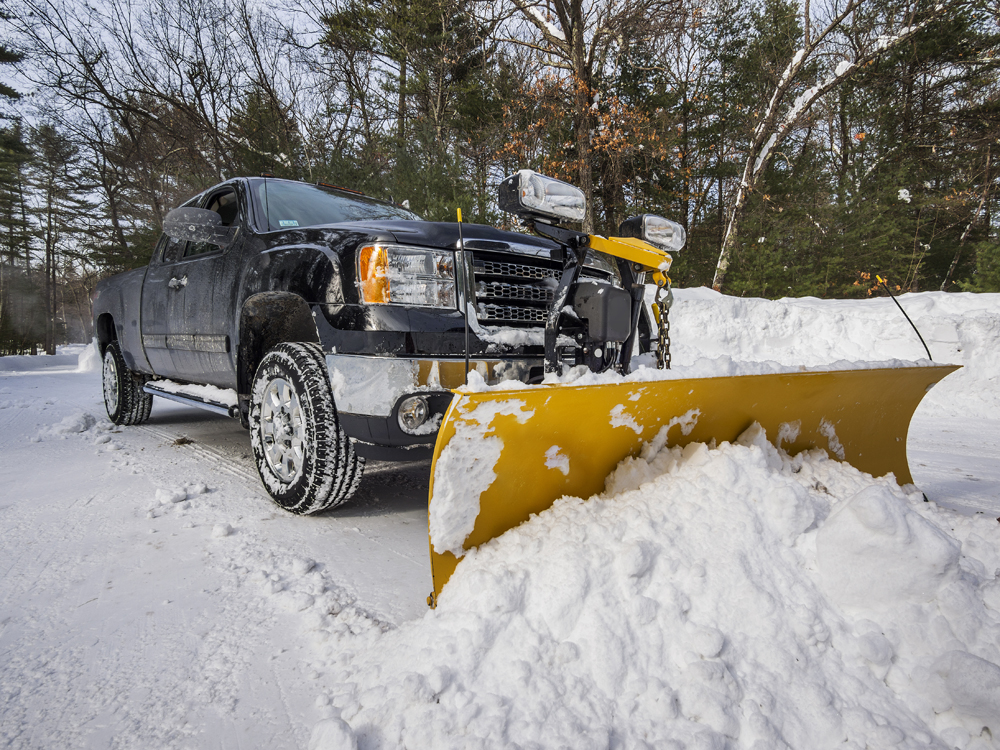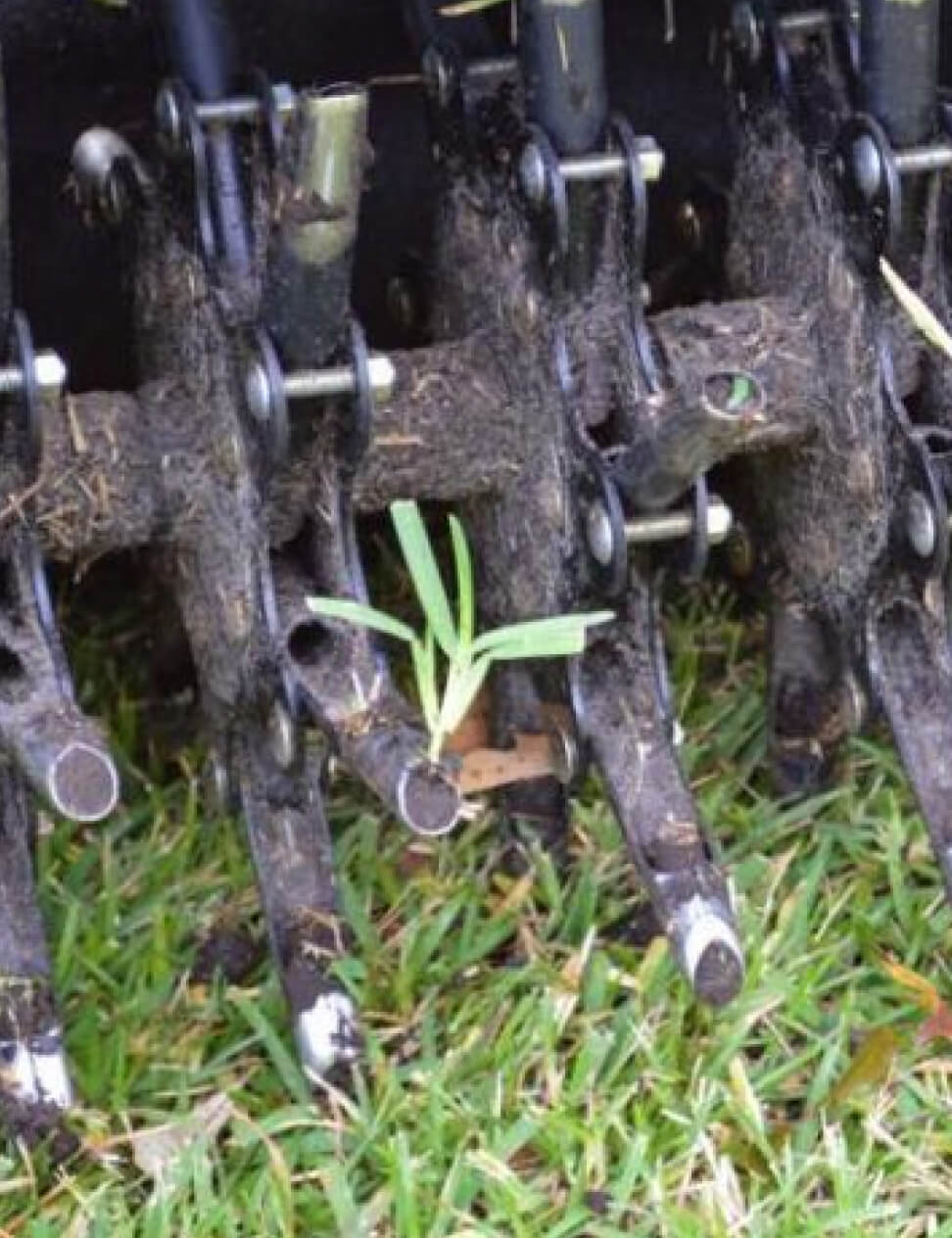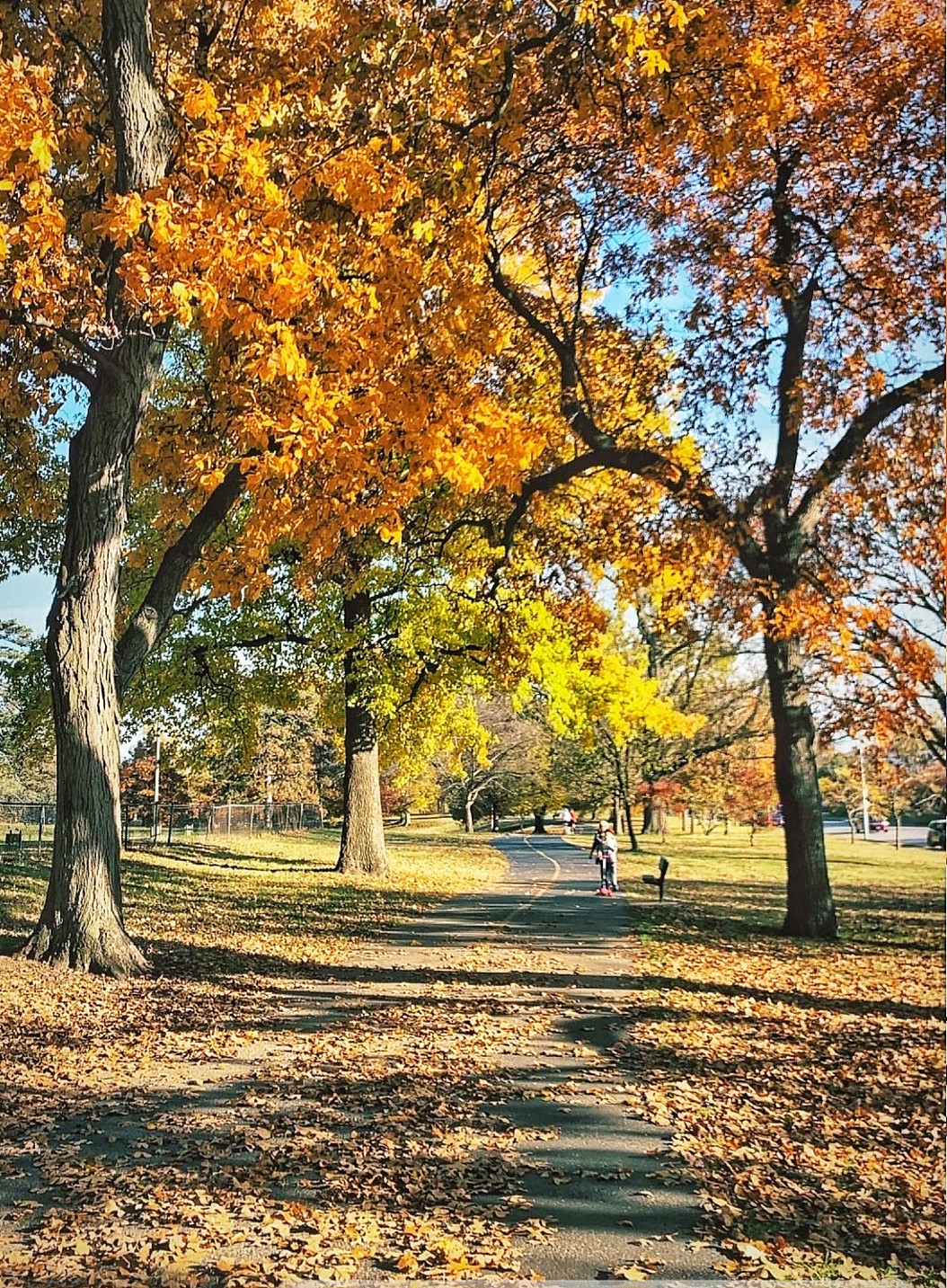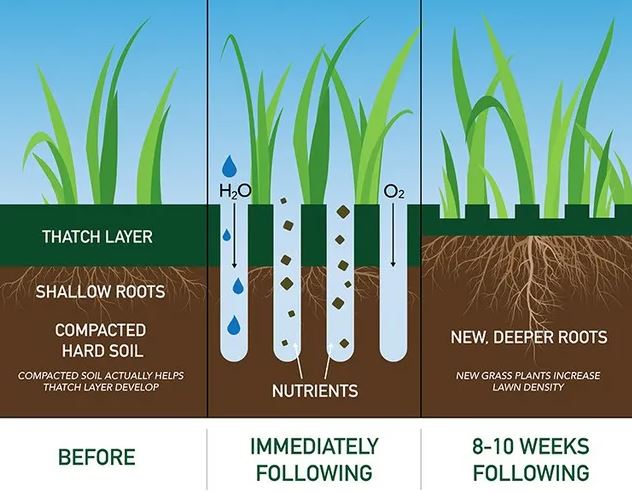

Ready to schedule?
Call us today or Get instant Quote
Over time the soil that the lawn grows on can become compacted due to a number of reasons such as use for sports, walking, vehicles, parking and children playing. This soil compaction can have a negative effect on your lawn. The damage to your lawn from soil compaction results from the pore spaces within the soil becoming smaller and this leads to both a reduced amount of air held in the soil, restricted air flow and reduced water infiltration into the soil. These results of soil compaction are damaging to a lawns health.

Reduced air levels and restricted air circulation in the soil means that the grass roots are less able to take up oxygen. Reduced soil pore space also leads reduced levels of nutrient uptake from the soil. Oxygen is a vital input into a plants growth cycle. If the ability of water to infiltrate the soil is limited by soil compaction then the water will not infiltrate as deeply into the soil as normal, this means the lawns roots will not develop as deeply and so the lawn will be more at risk from drought and other environmental stresses. Soil compaction also means there is greater resistance against the roots as they try to develop to greater depths. Poor development of roots below the soil will result in a poor lawn condition above the soil.
There are other factors besides soil compaction that may give us reason to aerate our lawn. If our lawn contains a considerable build up of thatch then we can use core aeration to help break down the thatch. This process occurs as the cores of soil that are left on the lawn surface by core aeration introduce soil micro organisms into the thatch layer. These micro organisms breakdown the layer of thatch and return nutrients to the soil.
Lawn aeration may be necessary on heavy clay soils to help soil air circulation and water filtration.
Lawn aeration has a number of benefits including:
St. Louis Lawn Care will provide your yard with yearly aeration and fertilization.


